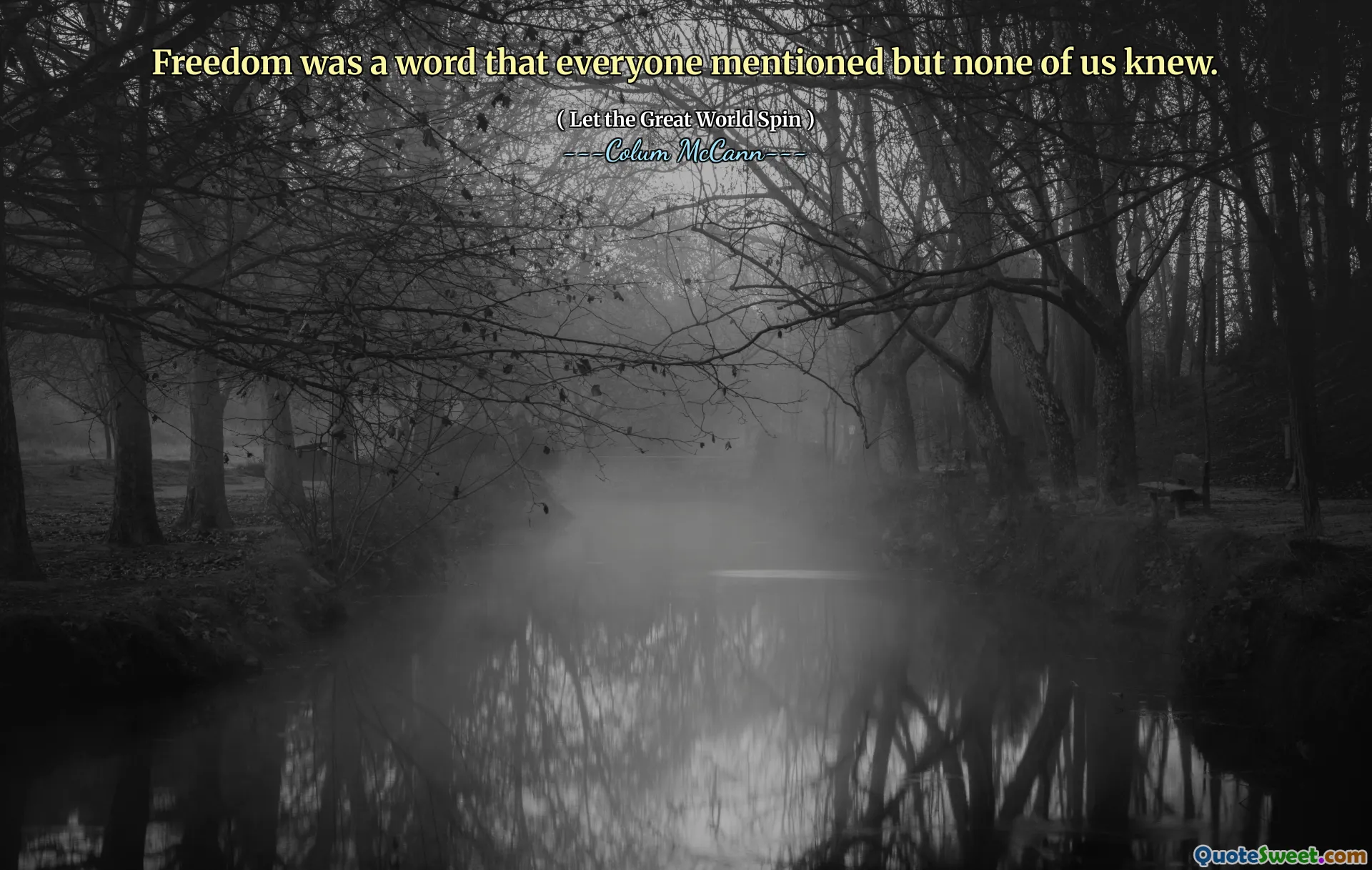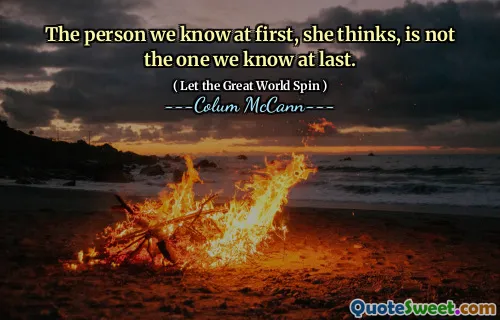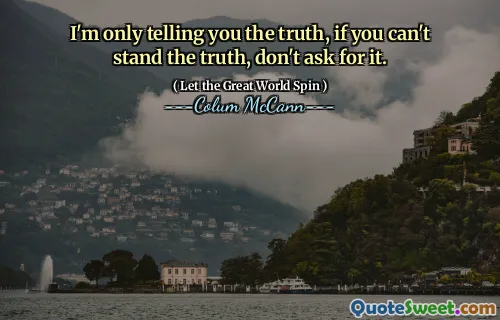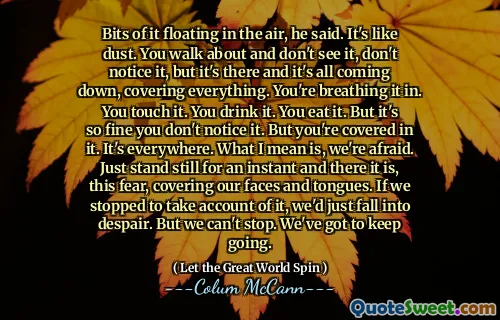
Freedom was a word that everyone mentioned but none of us knew.
This quote captures a profound sense of disillusionment and the complex relationship that people often have with the concept of freedom. The notion that liberty is frequently invoked yet poorly understood reflects a societal paradox: sovereignty and independence are ideals many aspire to, but the true essence of freedom can be elusive and misunderstood. It calls into question whether freedom is an attainable state or simply a rhetorical device used to inspire, justify, or control. Often, individuals and groups talk about freedom in abstract terms—liberation from oppression, the pursuit of happiness, or personal autonomy—yet lack a clear grasp of what it truly entails or how to achieve it. This ambiguity can lead to complacency, exploitation, or the distortion of the idea for strategic purposes. For some, freedom becomes synonymous with chaos or an unbounded pursuit of desires, which in turn reveals the societal complexities of balancing individual liberties with collective responsibilities. The quote also hints at a shared ignorance or naivety, suggesting that even as everyone mentions freedom, few can define its contours or comprehend its implications deeply. This reflection aligns with the idea that true understanding requires critical awareness and intentional effort—something often missing in societal discourse. The pursuit of understanding freedom might involve recognizing its limitations, responsibilities, and the context in which it exists. It’s a reminder that words can be empty without meaningful comprehension and that the real challenge perhaps lies not in acknowledging the concept but in making it tangible within everyday life.










